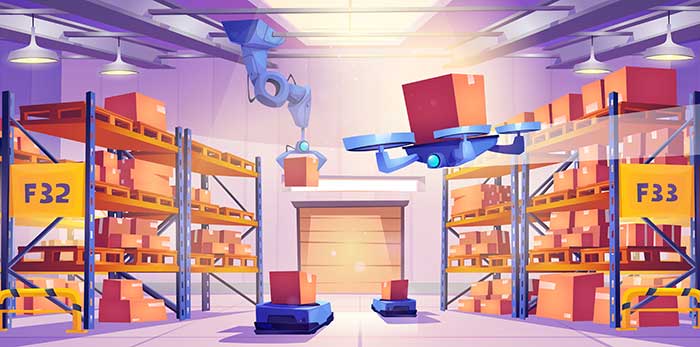The Future of Retail Supply Chains: 10 Pioneering Shifts
The retail landscape is witnessing transformative changes, with the future of retail supply chains playing a pivotal role in this evolution. Emerging technologies and evolving consumer expectations necessitate a supply chain that is agile, efficient, and customer-focused. In this piece, we will explore the ten significant shifts that are revolutionizing supply chain processes in the retail industry.
Table of Contents
Introduction
In the past, supply chain management was primarily about moving products from manufacturers to consumers in the most efficient way possible. However, as global supply chains become more complex and customers more discerning, the future of retail supply chains is unfolding with an expanded and evolved role.
The E-commerce Revolution
E-commerce has fundamentally altered retail supply chains. The surge in online shopping demands real-time inventory management, quick turnarounds, and the capacity to handle high order volumes. These requirements have propelled the development of sophisticated supply chain systems. You can learn more about the impact of e-commerce on the supply chain in our previous article.
The Advent of AI and Automation
AI and automation have become cornerstone technologies shaping the future of retail supply chains. These technologies can analyze vast amounts of data, predict trends, and make decisions, improving efficiency and customer satisfaction.
The Integration of AR & VR
Augmented Reality (AR) and Virtual Reality (VR) are heralding a new era of visualization in retail supply chains. These technologies enable improved data visualization, more effective training methods, and efficient warehousing processes.
The Emergence of Eco-Conscious Supply Chains
The future of retail supply chains is increasingly green, with sustainability becoming a key consideration. Retailers are focusing on creating eco-friendly supply chains, considering the carbon footprint, waste reduction, and ethical sourcing as integral parts of their supply chain strategy.
IoT and Real-Time Tracking
The Internet of Things (IoT) is enabling real-time tracking of goods, enhancing efficiency and traceability across the supply chain. This technology ensures that the right products are available at the right time, improving overall customer satisfaction.
The Incorporation of Blockchain
Blockchain technology is adding a layer of transparency and traceability to the future of retail supply chains. Retailers can track a product’s journey from production to the end consumer, ensuring authenticity and reducing the risk of counterfeit goods.
The Power of Advanced Analytics and Predictive Modeling
Advanced analytics and predictive modeling allow retailers to accurately forecast demand, reduce instances of stock outs, and manage inventory more efficiently. This has led to significant cost savings and enhanced customer service.
The Entry of Robotics into Warehousing and Logistics
Robotics is making a significant impact on warehousing and logistics, a shift that will shape the future of retail supply chains. Robots can handle repetitive tasks, increasing productivity, reducing errors, and making supply chain operations more efficient. This results in faster, more accurate order fulfillment, significantly enhancing customer satisfaction.
The Inclusion of Voice Assistants
Voice assistants are being integrated into supply chain processes, from inventory management to customer service. This integration provides a more seamless and interactive experience for both employees and customers, improving communication and efficiency across the supply chain.
The Rise of 3D Printing
3D printing, also known as additive manufacturing, is emerging as a game-changer in the retail industry. By enabling retailers to manufacture products on-demand, it reduces the need for extensive inventories and has the potential to revolutionize supply chain management. By producing goods closer to the point of sale, retailers can respond more quickly to changes in demand, reduce transportation costs, and improve sustainability.
Conclusion: Looking Ahead
As we look towards the horizon, it’s clear that the future of retail supply chains is a journey of continuous progression. The incorporation of emerging technologies and a growing emphasis on sustainability will shape the supply chains of tomorrow. These transformations will continue to drive efficiency and customer satisfaction to new heights, redefining the retail landscape in ways we can only begin to imagine.
This transformative journey presents an inspiring narrative of how technology, sustainability, and customer-centricity are converging to build stronger, more efficient, and responsive supply chains. As these trends continue to evolve, the future of retail supply chains promises to be even more intriguing and transformative.
